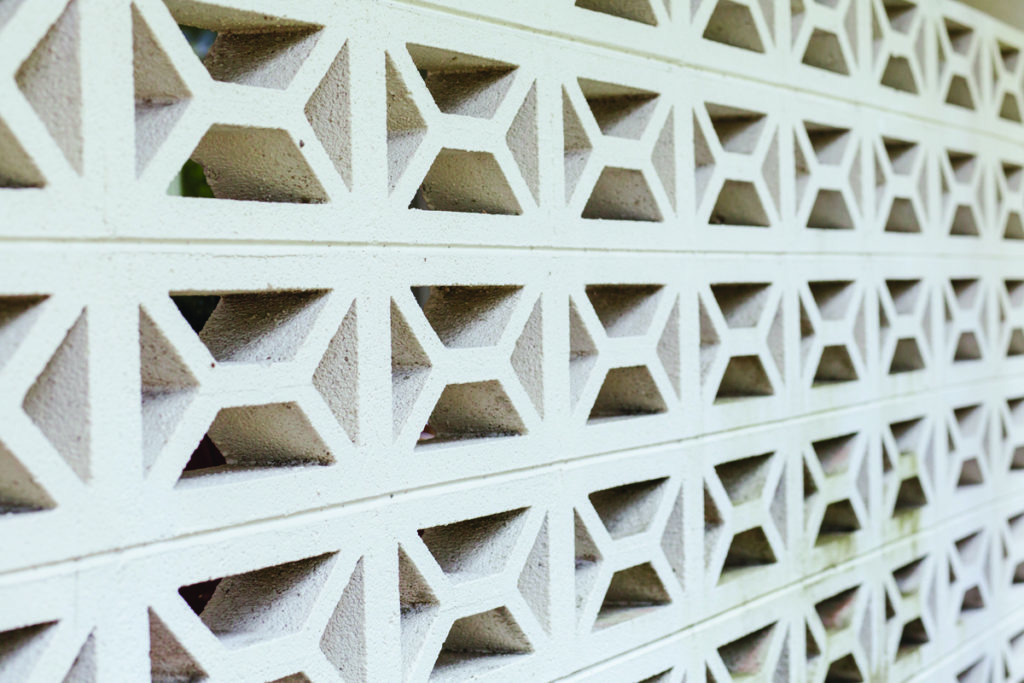by Allison Dupuis, JIA Museum Educator
On a drive around Jekyll Island, you can’t help but notice them: dozens of houses with unique roof lines, patterned concrete walls, and other, varied architectural elements designed to draw the eye. These aren’t the tabby farmhouses or millionaire mansions of Jekyll’s earlier history. Instead, the residential masterpieces scattered across the island point to a more recent architectural movement—and the legacy left behind by a distinctive period in the history of the island, the country, and the world. Each house displays a respect for the materials of its own construction as well as a Space-Age reverence for the future. What better name for such a style than mid-century modern?
Rooted in the designs are the architectural stylings of visionary Frank Lloyd Wright, whose work spans the late nineteenth and early twentieth centuries. Wright’s work intentionally stands in stark contrast to the Victorian formality of structures like the former Jekyll Island Club members’ many cottages. Instead, his style incorporates elements like concrete and glass, especially as a way to blur the relationship between the indoors and the outdoors. Wright’s vision was ahead of its time, but by the 1950s, its elements had become a major component of architectural styles that were now accessible for everyday Americans. As families around the country built their dream homes, they increasingly looked towards mid-century modern’s exposed framework and lack of ornament—and the new homes on Jekyll Island were no exception.
Jekyll became a state park in 1947. For the first few years after its opening, it was still accessible only by boat, and the few residents of the island lived in the buildings that already stood in the former Jekyll Island Club. The opening of the Jekyll Island Causeway in 1954 brought scores of new visitors to the island, many of whom decided they’d like to stay. Most of Jekyll’s mid-century modern homes, which still stand today in neighborhoods across the island, were constructed between 1955 and 1971. Local architects like Cormac McGarvey and Joe Schlosser built homes with concrete breezeblocks, flat roof panels, and glass details—all hallmarks of a style that would define Jekyll’s early state park years. Today, the homes are just as much a part of Jekyll’s spirit as the former Jekyll Island Club or the iconic Driftwood Beach. They stand as a showcase of early residents’ excitement about their new home on the island, and as a symbol of their connection to the decades that shaped the future of Jekyll Island.
These mid-century masterpieces are as much a part of Jekyll Island’s history as the millionaires’ cottages. The houses and those that lived in them shaped the State Era, from Jekyll’s premiere as a state park in 1947 to the present day. This year, the island continues its celebration of 75 years as Jekyll Island State Park. A new exhibit commemorating the island’s Diamond Jubilee opened at Mosaic, Jekyll Island Museum in September—it includes a life-size commemorative sandcastle and time capsule objects that will showcase Jekyll history far into the future. Visit Mosaic, Jekyll Island Museum to explore state era history and leave your mark on this special place!
